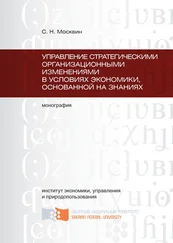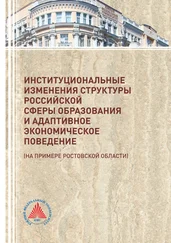Libecap, Gary D. 1989. ContmctingforPrcpertyRights. Cambridge: Cambridge University Press.
Libecap, Gary D. and Wiggins, Steven N. 1985. ‘The Influence of Private Contractual Failure on Regulation: The Case ofOil Field Unitization”. Journal of Political Economy, 93: 690–714.
Lopez, Robert S. and Raymond, Irving W. 1955. Medieval Trade in the Mediterranean. New York: Columbia University Press.
Lucas, Robert E. Jr., 1986. “Adaptive Behavior and Economic Theory”. In Hogarth, Robin M and Reder, Melvin W. (eds.). The Behavioral Foundations of Economic Theory. Journal of Business (supplement), 59: S401-S426.
Lucas, Robert E., 1988. “On the Mechanics of Economic Development”. Journal of Monetary Economics, 22: 3-42.
Macferlane, Alan. 1978. The Origins of English Individualism: The Family, Property and Social Transition . Oxford: Blackwell.
Machina, Mark. 1987. “Choice Under Uncertainty: Problems Solved and Unsolved”. Journal of Economic Perspectives, 1: 121–154.
Margin, Stephen. 1974. “What Do Bosses Do?”. Review ofRadical Political Economy, 6: 33–60.
Margolis, Howard. 1982. Selfishness, Altruism and Rationality: A Theory of Social Choice. Cambridge: Cambridge University Press.
Milgrom, Paul R., North, Douglass C. and Weingast, Barry W. 1990. ‘The Role of Institutions in the Revival of Trade: The Law Merchant, Private Judges, and the Champagne Fairs”. Economics and Politics, 2: 1-23.
Miller, Gary. Forthcoming. Managerial Dilemmas: The Political Economy of Hierarchies. Cambridge: Cambridge University Press.
Mitchell, William. 1969. An Essay on the Early History of the Law Merchant. New York: Burt Franklin Press.
Nelson, Douglas and Silberberg, Eugene. 1987. ‘“Ideology and Legislator Shirking”. Economic Inquiry, 25: 15–25.
Nelson, Richard and Winter, Sidney G. 1982. An Evolutionary Theory of Economic Change. Cambridge: Harvard University Press.
Nelson, Richard. Forthcoming. “Capitalism as an Engine ofProgress”. Research Policy.
North, Douglass C. 1955. “Location Theory and Regional Economic Growth”. Journal ofPolitical Economy, 63: 243–258.
North, Douglass C. 1981. Structure and Change in Economic History. New York: Norton.
North, Douglass C. 1984. “Government and the Cost of Exchange”. Journal of Economic History, 44: 255–264.
North, Douglass C. 1986. “Is It Worth Making Sense ofMarx?”. Inquiry, 29: 57–64.
North, Douglass C. and Rutten, Andrew. 1987. ‘The Northwest Ordinance in Historical Perspective”. In Klingaman, D. and Vedder, R. (eds.). Essays on the Old Northwest. Athens: Ohio University Press.
North, Douglass C. and Thomas, Robert P. 1973. The Rise o/the Western World: A New Economic History. Cambridge: Cambridge University Press.
North, Douglass C. and Weingast, Barry W. 1989. “The Evolution ofInstitutions Governing Public Choice in 17th Century England”. Journal o/Economic History, 49: 803–832.
North, Douglass C. Forthcoming. “Institutions, Transaction Costs, and the Rise of Merchant Empires”. In Tracy, James D. (ed). The Political Economy o/Merchant Empires. Cambridge: Cambridge University Press.
Olson, Mancur. 1965. The Logic o/Collective Action. Cambridge: Cambridge University Press.
Ostrom, Elinor. 1986. “AnAgenda for the Study ofInstitutions” Public Choice, 48: 3-25.
Ostrom, Vincent. 1971. The Political Theory o/a Compound Republic: A Reconstruction o/the Logical Foundation o/Democracy as Presented in the Federalist. Blacksburg, VA.: VPI, Center for Study of Public Choice.
Pelikan, Pavel. 1987. “The Formation of Incentive Mechanisms in Different Economic Systems”. In Hedlund, Stefan (ed.). Incentives and Economic Systems. New York: New York University Press.
Plott, Charles R. 1986. “Rational Choice in Experimental Markets”. In Hogarth, Robin M. and Reder, Melvin W. (eds.). The Behavioral Foundations of Economic Theory. Journal o/Business (supplement), 59: S301-S328.
Polanyi, M 1967. The Tacit Dimension. Garden City: Doubleday-Anchor.
Posner, Richard A. 1980. “A Theory ofPrimitive Society, with Special Reference to Law”. Journal o/Law and Economics, 23: 1-53.
Riker, William H 1976. “Comments on Vincent Ostrom’s Paper” Public Choice, 27: 13–15.
Romer, Paul M 1986. “Increasing Returns and Long-Run Growth”. Journal o/Political Economy, 94: 1002–1038.
Rosenberg, Nathan. 1972. Technology and American Economic Growth. New York: Harper and Row.
Rosenberg, Nathan. 1974. “Karl Marx on the Economic Role of Science”. Journal o/Political Economy, 82: 713–728.
Rosenberg, Nathan. 1976. Perspectives on Technology. Cambridge: Campbridge University Press.
Schmookler, J. 1957. “Inventors Past and Present”. Review o/Economics and Statistics, 39: 321333.
Schofield, Norman. 1985. “Anarchy, Altruism and Cooperation: A Review”. Social Choice and Wel/are, 2: 207–219.
Schumpeter, Joseph A. 1934. The Theory o/ Economic Development: An Inquiry into Pro/its, Capital, Interest and the Business Cycle. Cambridge: Harvard University Press.
Schumpeter, Joseph A. 1954. “The Crisis of the Tax State”. International Economic Papers, 4: 5
38.
Scrutton, Thomas Edward. 1891. The Elements o/Mercantile Law. London: W. Clowes.
Sheehan, S. 1973. “Peas”. The New Yorker, 49: 103–118.
Shepard, Andrea. 1987. “Licensing to Enhance Demand for New Technologies”. Rand Journal of Economics, 18: 360–368.
Shepsle, Kenneth A. 1986. ‘“Institutional Equilibrium and Equilibrium Institutions”. In Weisberg, Herbert (ed). Political Science: The Science of Politics. New York: Agathon Press.
Shepsle, Kenneth A. 1989. ‘The Changing Textbook Congress”. In Chubb, JohnE. and Peterson, Paul E. (eds.). Can the Government Govern? Washington, D.C.: Brookings Institution.
Shepsle, Kenneth A. and Weingast, Barry W. 1987. ‘The Institutional Foundations of Committee Power”’. American Political Science Review, 81: 85-104.
Simon, Herbert. 1986. “Rationality in Psychology and Economics”. In Hogarth, Robin M and Reder, Melvin W. (eds.). The Behavioral Foundations of Economic Theory. Journal of Business (supplement), 59: S209-S224.
Skocpol, Theda. 1979. States and Social Revolutions: A Comparative Analysis of France, Russia and China. Cambridge: Cambridge University Press.
Sokoloff Kenneth L. 1988. ‘“Inventive Activity in Early Industrial America: Evidence From Patent Records, 1790–1846”. Journal of Economic History, 58: 813–850.
Stubbs, William. 1896. The Constitutional History of England, Volume II. Oxford: Clarendon Press.
Sugden, Robert. 1986. The Economics of Rights, Co-operation, and Welfare. Oxford: Blackwell.
Taylor, Michael. 1982. Community, Anarchy and Liberty. Cambridge: Cambridge University Press.
Taylor, Michael. 1987. The Possibility ofCooperation. Cambridge: Cambridge University Press.
Tracy, James D. 1985. A Financial Revolution in the Hapsburg Netherlands: Renten and Ren- teniers in the County of Holland. Berkeley: University of California Press.
Udovitch, Abracham. 1962. “At the Origins of the Western Commenda: Islam, Israel, Byzantium?”. Speculum, 37: 198–207.
Veitch, John. 1986. ‘“Repudiations and Confiscations by the Medieval State”. Journal of Economic History, 56: 31–36.
Veliz, Claudio. 1980. The Centralist Tradition in Latin America. Princeton: Princeton University Press.
Wallis, John J. and North, Douglass C. 1986. “Measuring the Transaction Sector in the American Economy, 1870–1970”. In Engerman, S. L. and Gallman, R. E. (eds.). Long-Term Factors in American Economic Growth. Chicago: University ofChicago Press.
Watts, R. L. and Zimmerman, J. L. 1983. “Agency Problems, Auditing and the Theory ofthe Firm: Some Evidence”. Journal ofLaw and Economics, 26: 613–633.
Читать дальше










